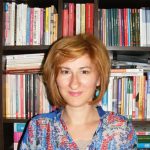Vladimir Glomb (FU Berlin)
23 March 2018
Confucian academies (sŏwŏn) are still a rather less known part of the Confucian intellectual world that has dominated the Korean cultural landscape until the coming of modernity. Being closely bound to scholarly efforts of self-cultivation and vigorous study of Confucian teaching, academies ceased to function in their traditional sense at the end of the 19th century, and for most of the twentieth century were seen only as cultural relics (in the Republic of Korea), or worse, as representatives of the oppressive feudal order (in the DPRK). Renewed interest in Confucian heritage in the last two decades brought a new impetus for various studies focusing on intellectual, religious, economic, and social functions of the academies within premodern Korean society, as well as their modern reflection in both Korean states. Research activities within the field have been revived through the advance of disciplines related to studies of Confucian academies and the opening of many archive materials to public research.
The search for a valid definition of Confucian academies applicable for diverse local societies and historical periods requires a broader understanding of Confucian academies as a dynamic concept evolving over time both in terms of form and context. In spite of the rhetoric stressing the nature of academies as a place of seclusion and intensive study, separated from outside influences, academies played a significant performative role, both outwards and inwards. In fact, they can be considered active participants of public discourse, serving as a crucial point between scholar, state and local community. Being a part of local communities, they served primarily as a tool of the spread of Confucian influence and in many cases reshaped the adjacent environments, not only in intellectual, but also in social and economic terms. The same can be concluded as well for the inner workings of the academies: Apart from intellectual debate, academies strived to create the world on their own, which would reshape its inhabitants via diverse strategies ranging from physical discipline to artistic expression embodied by buildings, calligraphies and the seasonality of life in the academy. The legacy of this unique cultural and social phenomena in both Korean states will be the subject of the planned course and essay.
Vladimir Glomb is a researcher in the fields of Korean philosophy, Confucianism in general, and pre-modern Korean language and thought. Since 2010, he has been lecturing as an assistant professor in the Department of Korean Studies at Charles University, Prague. Since 2016, he is a researcher within the framework of the Collaborative Research Center, “Episteme in Motion: Transfer of Knowledge from the Ancient World to the Early Modern Period,” at the Freie Universität Berlin.


